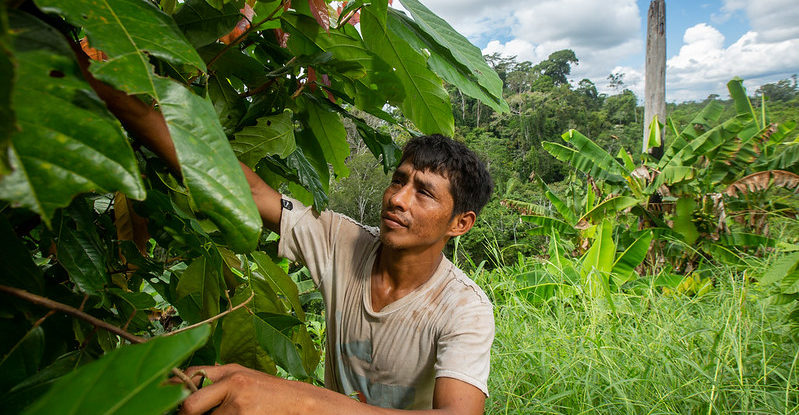
Resilient Landscapes, officially launched at the digital forum Can tree planting save our planet? hosted by CIFOR and World Agroforestry (ICRAF), is an innovative platform designed to leverage the centers’ combined 69 years of research, technology and innovation on integrated forestry and agroforestry systems.
It is also tailored to provide solutions for companies, financial investors, donors and governments to the most complex and urgent global crises – ranging from climate change to biodiversity loss to broken food systems.
The term “nature-based solutions” increasingly reverberates through climate-change lexicon, referring to ways of mitigating its impact by protecting and restoring the natural world. Often, it is broadened out to include using nature to address other complex global challenges, such as alleviating poverty and conserving biodiversity.
Tree-planting might well be the most-heralded nature-based solution of late, with governments, businesses and public figures, from primatologist Jane Goodall to software-maker Salesforce, supporting ambitious planting pledges, such as the blockbuster 1T.org initiative launched earlier this year, which aims to plant and protect 1 trillion trees by 2030.
“We are seeing tree planting growing into a global movement, and a default move in order to restore ecosystem balance and save the planet from the ravages of climate change,” said CIFOR Director-General Robert Nasi at Can tree planting save our planet? hosted by CIFOR and World Agroforestry (ICRAF).
“This is what we want – or at least what I want,” he said. “But the simplistic assumption that if you need to offset your emissions you plant a tree is wrong, and these kinds of practices must change. We should not be interested in planting trees but in growing trees. There is a difference in terms of time and in terms of scale: this is a long-term endeavor.”
We want you to share Forests News content, which is licensed under Creative Commons Attribution-NonCommercial-ShareAlike 4.0 International (CC BY-NC-SA 4.0). This means you are free to redistribute our material for non-commercial purposes. All we ask is that you give Forests News appropriate credit and link to the original Forests News content, indicate if changes were made, and distribute your contributions under the same Creative Commons license. You must notify Forests News if you repost, reprint or reuse our materials by contacting forestsnews@cifor-icraf.org.